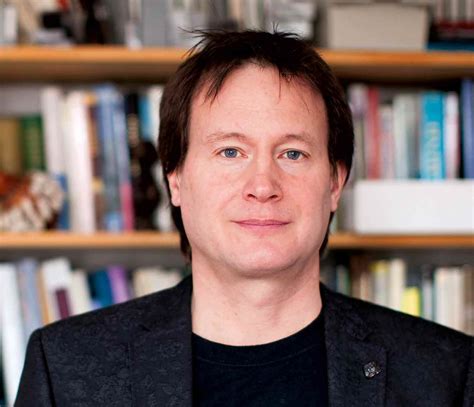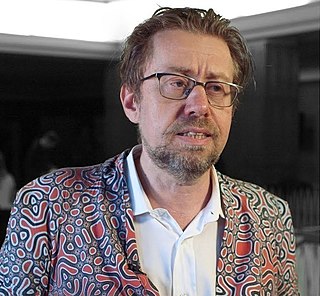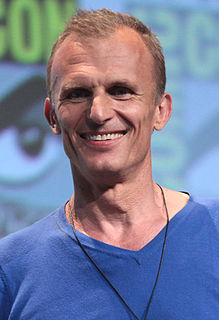A Quote by Bruce Hood
Our self illusion is so interwoven with personal memories that when we recall an event, we believe we are retrieving a reliable episode from our history like opening a photograph album and examining a snapshot in time. If we then discover the episode never really happened, then our whole self is called into question. But that's only because we are so committed to the illusion that our self is a reliable story in the first place.
Related Quotes
If we only identify with the mortal world, then we identify with a level of scarcity and lack and brokenness, and that will be our experience. But if we shift our experience of self-identification - and this is what enlightenment is - from the body-self to the spiritual-self, then we place ourselves under an entirely different set of possibilities and probabilities.
Our moral reasoning is plagued by two illusions. The first illusion can be called the wag-the-dog illusion: We believe that our own moral judgment (the dog) is driven by our own moral reasoning (the tail). The second illusion can be called the wag-theother-dog's-tail illusion: In a moral argument, we expect the successful rebuttal of an opponent's arguments to change the opponent's mind. Such a belief is like thinking that forcing a dog's tail to wag by moving it with your hand will make the dog happy.
We don't save our soul and leave our emotions and our feelings and our body and all the rest of it out. That's just a way of talking that emphasizes the soul is so fundamental that we can, in some cases, treat it as the whole person because it actually is the thing that integrates all of these aspects of the self and makes them work together. Now, I don't think we can find a passage in the Bible that says that. We have to read and study how it addresses the soul, and we then see that it is the deepest, most vital part of the human self.
In our true blissful essence of mind is known that everything is alright forever and forever and forever...listen to the silence inside the illusion of the world, and you will remember the lesson you forgot, It is all one vast awakened thing. We were never really born, we will never really die. It has nothing to do with the imaginary idea of a personal self, other selves, many selves everywhere: Self is only an idea, a mortal idea. That which passes into everything is one thing. It's a dream already ended.
I realized that most thoughts are impersonal happenings, like self-assembling machines. Unless we train ourselves, the thoughts passing through our mind have little involvement with our will. It is strange to realize that even our own thoughts pass by like scenery out the window of a bus, a bus we took by accident while trying to get somewhere else. Most of the time, thinking is an autonomous process, something that happens outside of our control. This perception of machine-like quality of the self is something many people discover, then try to overcome, through meditation.
James says, "You desire and do not have; so you kill" (Jas. 4:2). We kill marriages and we kill unborn babies because they cut across our desires; they stand in the way of our unencumbered self-enhancement. And we live in a culture where self-enhancement and self-advancement is god. And if self-enhancement is god, then the One who is at work in the womb shaping a person in His own image is not God and the assault on His work is not sacrilegious, but obedience to the god of self.
Our culture has few taboos that can't be violated, and our establishment has largely given up on setting standards in the first place. Except where Islam is concerned. There, the standards are established under threat of violence, and accepted out of a mix of self-preservation and self-loathing. This is what decadence looks like: a frantic coarseness that "bravely" trashes its own values and traditions, and then knuckles under swiftly to totalitarianism and brute force.
I love my situation as a spectator. The actors are only a little bit ahead of the audience. The audience discovers the episode when it's screened, but we actors only discover the episode when we get the script, two weeks ahead of shooting. Until then, we know nothing of the evolution of our characters.


































